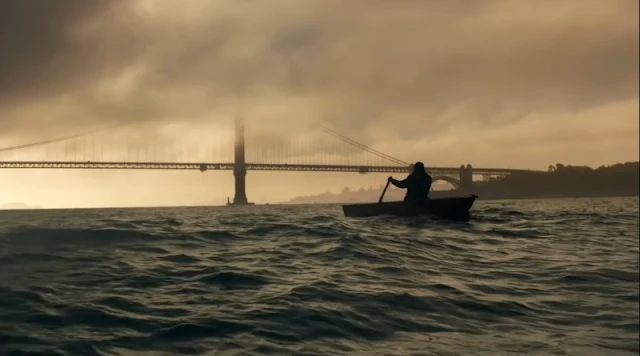 |
| Garrett Hedlund and Jason Mitchell in Mudbound |
Mudbound is a solid, hard-edged, sometimes raw look at Mississippi in the post-World War II period, one I know well, having been born into that time and place. It only occasionally slips into the "Magical Negro" and "White Savior" tropes that afflict so many films about race relations. For example, it has Jamie McAllan (Garrett Hedlund) in his crippled bomber saluted by one of the Tuskegee Airmen, who have just rescued him from an attack by German fighter planes. This serves as a predicate for Jamie's friendship with Ronsel Jackson (Jason Mitchell) and his attempt to save him from a lynch mob headed by Jamie's own father, known as "Pappy" (Jonathan Banks). The screenplay also subverts some of the film's earlier harshness by tacking on a somewhat happy ending for Ronsel, who reunites with his German girlfriend and their son. It feels gratuitously sentimental in comparison with what has gone before. Nevertheless, Mudbound is a well-acted film, sometimes beautifully acted, as in the case of the Oscar-nominated Mary J. Blige as Florence Jackson, the tower of strength for both the Jackson and the McAllan families. Rachel Morrison also deserved her Oscar nomination -- the first ever for a woman -- for cinematography. She provides images of both the stark beauty of the Mississippi Delta landscape and the oppressiveness of the mud that clings to and clots the lives of its inhabitants.
